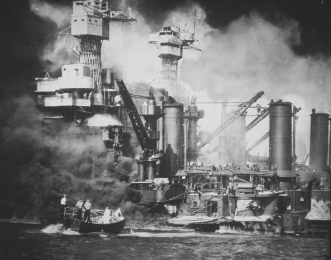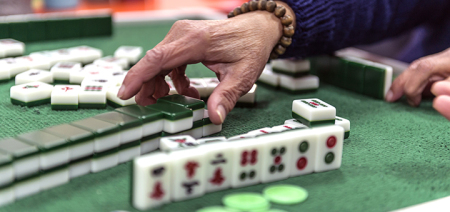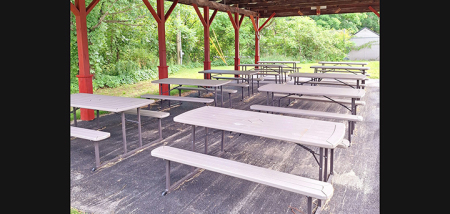Veterans Recall Pearl Harbor On 65th Anniversary
Published:
December 7th, 2006
By:
Michael McGuire

OXFORD – World War II Army Veteran Ford Hitt Sr. doesn’t have the easiest time telling his Pearl Harbor story in words, but his eyes, and his heart, do a fine job.
Hitt, 86, of Norwich, does indeed have a unique story to tell, as he is believed to be the only living survivor of Japan’s surprise attack currently residing in Chenango County. He recalls being afraid 65 years ago today, but not until after the staggering onslaught was over, for the simple reason that while it was occurring, he didn’t have any time to be scared.
The attack lasted roughly two hours, and killed over 2,400 U.S. servicemen (an overwhelming majority were from the Navy), wounded over 1,100 more, wiped out 18 battleships and 188 air craft, and shocked the United States into World War II.
When asked, if given the chance would he place himself back in Pearl Harbor on Dec. 7, 1941, Hitt replied with watering eyes, “Oh yes.”
Hitt and other fellow residents at the New York State Veterans’ Home in Oxford remember Pearl Harbor from different perspectives, but they agree the crippling attack jolted the country out of a comfort zone, and bolstered the unified support it needed to enter another world war.
“They caught us with our pants down,” said Joseph Spanish, a WWII Veteran from Syracuse, remarking on how suddenly Japan had exposed the unseen U.S. insecurity. Spanish said he was leaving a movie theater when he found out the attack had occurred, and at the time he didn’t quite understand its gravity. But only a few months later, with written, but somewhat weary consent from his parents, a 17-year-old Spanish enlisted with a U.S. Navy he said was desperate for men. He affirmed that it didn’t take him long to learn what the bombing of Pearl Harbor had done.
“I was just a kid,” Spanish said. “But I sure found out quick.”
Others can remember the attack’s impact state-side that day, and its impact throughout the duration of the war.
“The fact that war was declared impressed everyone,” said Dorothy Chynoweth of Gilbertsville, who served for four years in the Women’s Army Corps at its headquarters in Des Moines, Iowa. However, Chynoweth said the shock of entering WWII quickly subsided, and the people at home handled taking the unusual measures to support the subsequent war effort in stride. “We all felt it had to be done,” Chynoweth said.
“We were ready to do anything they needed,” said Ted Radicchi, a Binghamton native who was an X-ray technician at an Army hospital in Denver.
Hitt’s wife Marjorie, just a friend of her husband’s during WWII, said that his family didn’t hear from him until after the New Year, going nearly one month without knowing if he had survived the bombing.
“He wrote that when he heard the explosions, and then saw the Rising Sun on the side of the airplanes,” recalled Marjorie, speaking of Ford’s first letter home, “he knew it was the Real McCoy.”
Various accounts of the bombing document many servicemen at the time wondering if the attack was real, or if it was just a drill.
Vets’ Home resident Lauren Arns of South Dakota was in Panama when his ship got word. “We didn’t know if it was a drill or not,” said Arns, who was a Naval musician for 20 years. When it became apparent that it was real, Arns said he had to sort of “hypnotize” himself to prevent fear from taking over. “I looked into a mirror and said, ‘Here we go God,” Arns said. “You had to talk to yourself.”
Pearl Harbor marked the beginning of a war-time tour that saw Hitt through the entire war, and across a great portion of the Pacific Theater. He was awarded a Bronze Star and several other medals for his efforts in the infantry and service units, and to this day meets with fellow Pearl Harbor survivors from throughout Central New York state, although his visits have become less frequent. His wife believes, although he never spoke of them much, that his efforts and experiences in World War II provided him with a broader perspective, and a better appreciation for life.
“I think it made him more restless. He always had to be on the go,” said Marjorie. “And where some men wouldn’t, he took more personal care of his children. He wasn’t above that.”
Author: Michael McGuire - More From This Author
Comments










